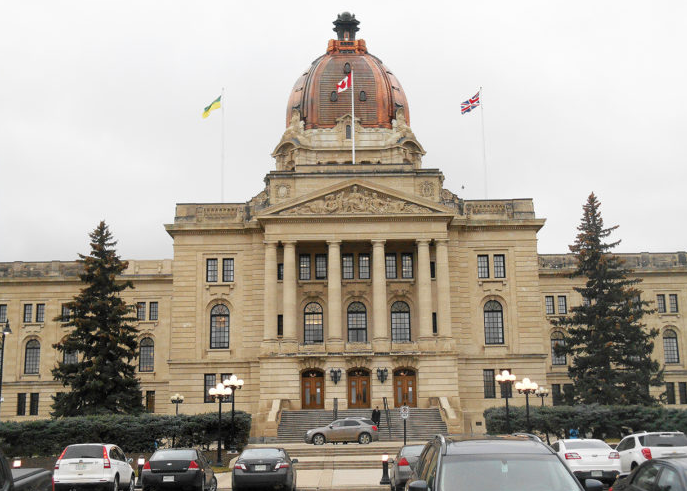Starting in April, the provincial government will charge oil and gas companies more money to lease Crown land.
The government announced the changes on Friday as part of their fees and charges update for 2019-20. The increase is expected to generate more than $11.3-million in additional revenue, and make provincial land lease agreements more competitive with fees charged by private landowners or the federal government.
Deputy Minister of Agriculture Rick Burton said the change is a step in the right direction, especially considering many fee rates haven’t been updated since 2007.
“This brings it to what we see as the market rate on private lands and federal lands,” Deputy Minister of Agriculture Rick Burton said. “If at some time in the future we feel that the rate is not in line with what’s being charged on private lands or on the federal lands, I think it would be something that would be looked at again.”
A large part of that will come from streamlining the rates, which were based on a variety of factors, including whether the land was cultivated or pastured, or how much land was being used. Lease fees dropped by as much as $390/acre if companies leased more than three acres.
The biggest fee increase comes from the first year development fees. In previous years, oil and gas companies paid $780/acre to rent their first three acres of cultivated land, and $390/acre for every subsequent acre. If the land was used for pasture, or if it belonged to the Ministry of Environment or Ministry of Parks, Culture and Sports, companies were charged $720/acre for the first three acres, and $360/acre for every acre after. Additional discounts were also provided if existing trails were already in place. Now, with the new rate structure, companies will pay $2,581/acre, regardless of how many acres are leased or whether it’s cultivated or pasture land.
The Ministry of Agriculture oversees more than 8,200 such leases from oil and gas companies on Crown land. Adjusting fees paid to this ministry alone will generate an estimated $10.8-million in additional revenue.
“We know the number of leases (and) we know the average impact of the change, so we’re pretty confident in that number of $10.8-million,” Burton said.
The Ministry of Environment expects to generate an additional $556,100 by updating and streamlining fees for oil and gas land leases under their jurisdiction. They also expect to generate an estimated $4.3-million from similar updates to peat, gravel, recreational, industrial and commercial leases from other individuals or companies. those changes will be implemented over a two-year timespan.
Lease fee changes will take effect on April 1, 2019, regardless of which ministry the land belongs to.
New roadside development permit and increased fees for oversized trucks among 19 fee and charge adjustments announced on Friday

The Ministry of Finance estimates that the 19 adjustments to fees and charges will generate $19.7 million in additional revenue for the province in 2019-20.
Changes to oil and gas leases will generate the most revenue, however they also expect to reap $1-million from a new one-time roadside development permit fee, and another $1-million from the trucking industry by increasing permit fees for overweight and over-length vehicles.
The roadside development fee will affect clients undertaking work within 90 metres of the highway right-of-way. That includes businesses, oil and gas companies and private landowners. The change will come into effect on Oct. 1, 2019.
Fees for overweight and over-length semi-trucks have not been updated since 1987. As of April 1, single trip permit fees for all overweight vehicles will jump from a $42/trip base fee to $50/trip. The per kilometre rate will also increase from 5 cents a kilometre to 10 cents a kilometre, and the annual permit fee will rise from $66/tonne to $100/tonne over the legal weight on an axle. The province has also introduced a new fee for over-length vehicles that are between 12.5 m and 23 m too long. Previously, the province only charged $10 for over-length vehicles be 23 m and 29 m. Starting in April, they will charge $15 for any over-length vehicle longer than 12.5 m.
The changes are intended to bring Canada in line with other jurisdictions, while also paying for road repairs and infrastructure investments needed to accommodate overweight and over-length vehicles.


